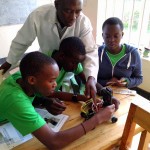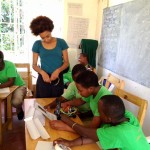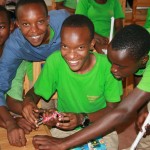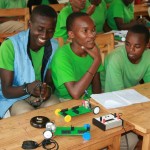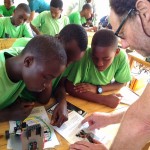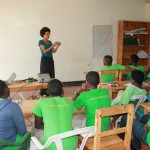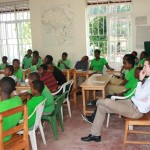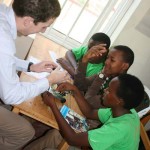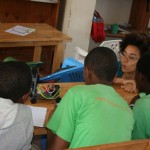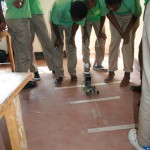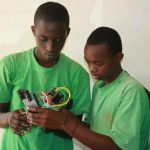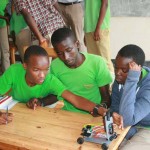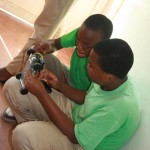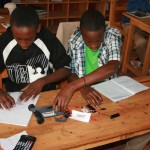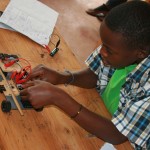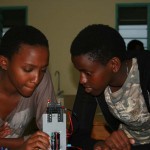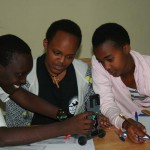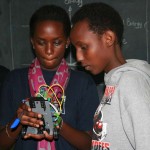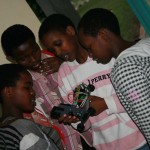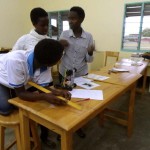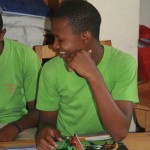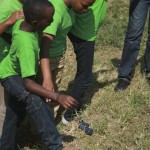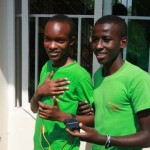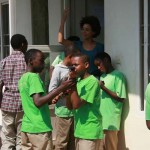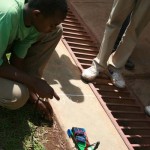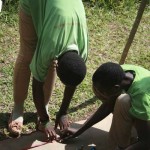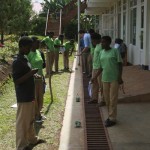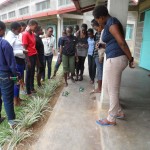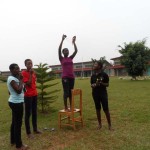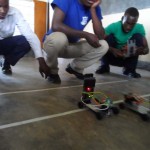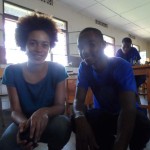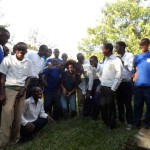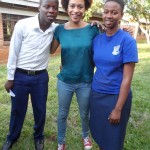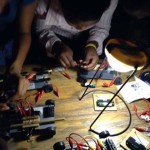Why an education project? The GLE education project first started because we were finding it difficult to employ local engineers, due to their lack of technical engineering skills. In the current education system science theory is effectively taught, but with insufficient practical lessons. A practical skill set is essential to becoming an effective engineer. Furthermore, without practical lessons students struggle to understand how to apply the theory they have learned. This weakens the benefits of their education as well as weakening their potential in the job market. We decided to use our expertise inelectrical engineering and solar technologies to implement an education programme that would increase student’s practical engineering skills and enhance their understanding of physics and engineering concepts. How we got started GLE hired EWB-UK volunteerMariam Olayiwola, as part of a 6-month volunteer placement, to help implement a practical education programme based on electrical and solar engineering. We were also very lucky to have the support of a UK donor, Jeremy King who runs engineering workshops in schools in the UK. Jeremy kindly donated 2 of his workshops with a full set of kits, allowing us to run exciting and challenging engineering lessons using advanced electronic and solar technologies. Workshops in Secondary Schools We carried out workshops in secondary schools across the country. The workshops were initially aimed at upper secondary students, but we soon found that lower secondary students were just as eager to have practical lessons. The start of the workshops was always a stark contrast to the end. A lot of the students seemed overwhelmed by being given a practical task. At the beginning of the lessons the students would be timidly attempting to connect a battery to a motor, but by the end of the workshops we had them independently programming an electronic controller on our model buggies. Once they started solving practical tasks the students quickly became very animated. It was fantastic to see the students so excited about engineering and clear to see the sense of achievement they got from solving technical challenges. The science curriculum in Rwanda is very demanding and despite their lack of practical lessons the students were extremely bright. They asked a lot of questions about the science theory behind the workshops, some of which had our teachersrunning back to their textbooks! The students even came up with their own uses for the kit. One particularly motivated student decided to build an electromagnetic using some coiled wire, a battery and a nail from the materials we had in the kit. It was exciting to see this kind of innovation and creativity from the students and it made running the workshops very rewarding. Workshops for graduates and university students We also held a workshop in the GLE office for University students and secondary school graduates, who wanted to develop their practical engineering skills.The students were given a chance to talk to our engineer Ivan Asiimwe about working at GLE and the types of activities he carries out on a daily basis. This was a great way for them to get an insight into the types of jobs available after university and to explore the role of engineers in the solar industry. Comments from our future engineers
“The workshop was splendid and very interesting. I really don’t want to become an engineer, but it was really helpful and practical. Having second thoughts about my career. Thank U =)”
“just loved it, it was amazing, superb.”
“I thank you very much so may God reward you, but the time was not very much for me because the lesson was good. My question is that when will you be back for our next lesson. We loved you.”
“Thanks, and I would like to invite you to come again because it will help us to know more about engineering and we will become better engineers.”
“The workshop was really interesting for me in a way that one who didn’t like engineering would end up liking it.”
Comments from the teachers
“This type of learning was new to many students who are not used to hands-on learning and applying physics and math content knowledge to practical situations. The students were enthusiastic and many decided during that afternoon that they wanted to pursue an engineering career in their future!”
John Nejman
Physics Teacher, Gashora Girls Academy of Science and Technology
Future of the project At the end of Mariam’s placement GLE wanted to ensure that the kits could continue to be used by young people to develop their engineering skills. The kits were handed over to Gaspard Twagirayezu, is head of the Science Centre at Agohoza Shalom Youth Village (ASYV). The science centre is used by students to carry out practical science and engineering projects. Outside of the school Gaspard is also well known for carryout practical engineering workshops for the general public assisted by student university groups. GLE will continue to support Gaspardwith his workshops and promote solar energy and engineering to young people. External Links Jeremy King Website: http://www.steminschools.co.uk EWB-UK website: http://www.ewb-uk.org Mariam’s teaching blog: http://mariamolayiwola.wordpress.com
